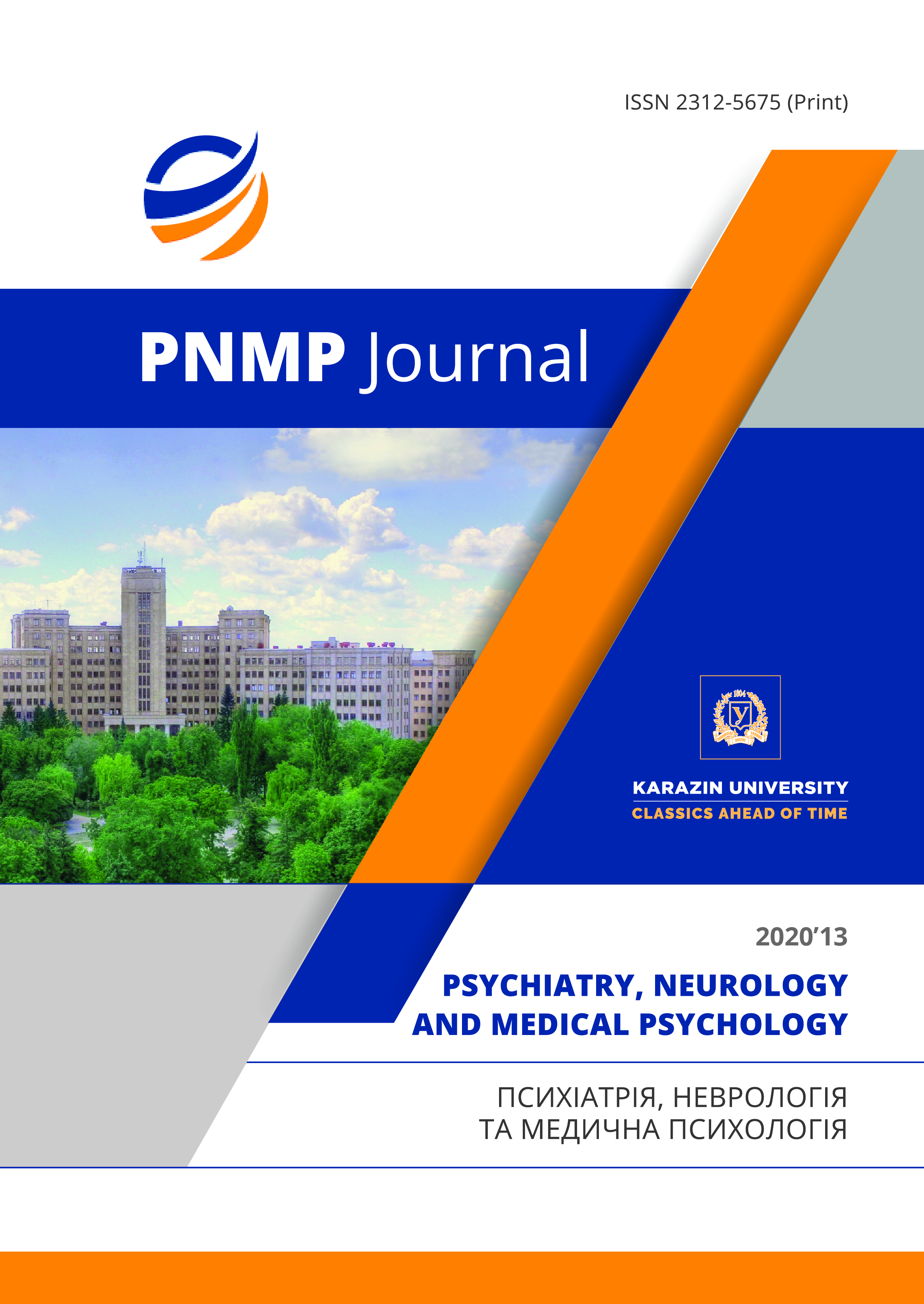Characteristics of personality in patients with endogenous psychoses with an episodicаl course in the context of post-manifest pathopersonаlogical transformations (comparative analysis)
Abstract
Solution of the problems of differential diagnosis, treatment and social rehabilitation of patients with endogenous psychoses with episodic course is one of the most complex and urgent problems of clinical psychiatry, which is caused by polymorphism and variability of symptoms, decrease or loss of critical attitude toward the disease, with grave social and economic consequences.
The aim of the study is to establish, on the basis of the results of the comparative analysis of the characteristics of the personal profile, the features and nosospecific differences of post-manifest pathopersonаlogical transformations in patients with schizophrenia, schizoaffective disorder and affective disorders in remission / intermissions.
The study examined the personality characteristics of endogenous psychoses with an episodic course in remission / intermission conditions and established signs and nosospecific differences in post-manifest pathological transformations in patients with schizophrenia, schizoaffective disorder, and affective disorders. Existing pathopersonalogical transformations are characterized by signs of multidirectional tendencies of compensatory tension of personal resources, which is confirmed by the presence of several moderately elevated (65-75 T-points) indicators of individual scales and a simultaneous increase in indicators of both hyposthenic (2nd and 7th scales) and hypersthenic ( 4th and 9th scales) registers. In schizoaffective disorder, such scales are the 2nd (65.36±12.28 T-points), 4th (73.23±11.83 T-points), 8th (68.40±12.33 T-points) and 9th (66.05±12.02 T-points); in affective disorders, these are the 2nd, 4th and 8th scales (67.72±13.96, 67.08±9.53 and 65.90±10.08 T-points, respectively); for schizophrenia, such scales are the 2nd (72.37 ± 16.80 T-points), 4th (69.47±12.48 T-points), 7th (66.59±15.69 T-points) ) and 8th (71.73±19.95 T-points). The obtained data can be used as a component of the differential diagnosis system and personified psychotherapeutic support.
Downloads
References
Voloshyn, P.V., Maruta, N.О. The Strategy of Mental Health Care of the population of Ukraine: contemporary opportunities and obstacles. Ukrainian bulletin of Psychoneurology. 2015. Vol. 1, pp. 5–11. [in Ukr.]
Wilson, J.E., Nian, H., Heckers, S. The schizoaffective disorder diagnosis: a conundrum in the clinical setting. European Archives Psychiatry and Clinical Neuroscience. 2014. Vol. 264(1), pp. 29–34. DOI: 10.1007/s00406-013-0410-7.
Thaler, N.S., Sutton, G P., Allen, D.N. Social cognition and functional capacity in bipolar disorder and schizophrenia. Psychiatry Research., 2014. Vol. 220(1–2), pp. 309–14. DOI: 10.1016/j.psychres.2014.08.035.
Santelmann, H., Franklin, J., Bußhoff, J. [et al.] Test-retest reliability of schizoaffective disorder compared with schizophrenia, bipolar disorder, and unipolar depression – a systematic review and meta-analysis. Bipolar Disorder. 2015. Vol. 17(7), pp. 753–68. DOI: 10.1111/bdi.12340
Vieta E. Developing an individualized treatment plan for patients with schizoaffective disorder: from pharmacotherapy to psychoeducation. Journal of clinical psychiatry. 2010. Vol. 73, pp. 14-19. DOI: 10.4088/JCP.9096su1cc.03.
Khomitskyi M. Ye. Psychopathological manifestations of endogenous psychoses in remission / intermission state as a predisposal factor to personological transformations (comparative analysis). Zaporozhye medical journal. 2018. Vol. 5(110), pp. 696–700. DOI: 10.14739/2310-1210. 2018.5.141541 [in Ukr.].
Sobchik L. N. Standardized multivariate method of personality research SMIL. 2000. St. Petersburg. 219 p. [in Russ.].

